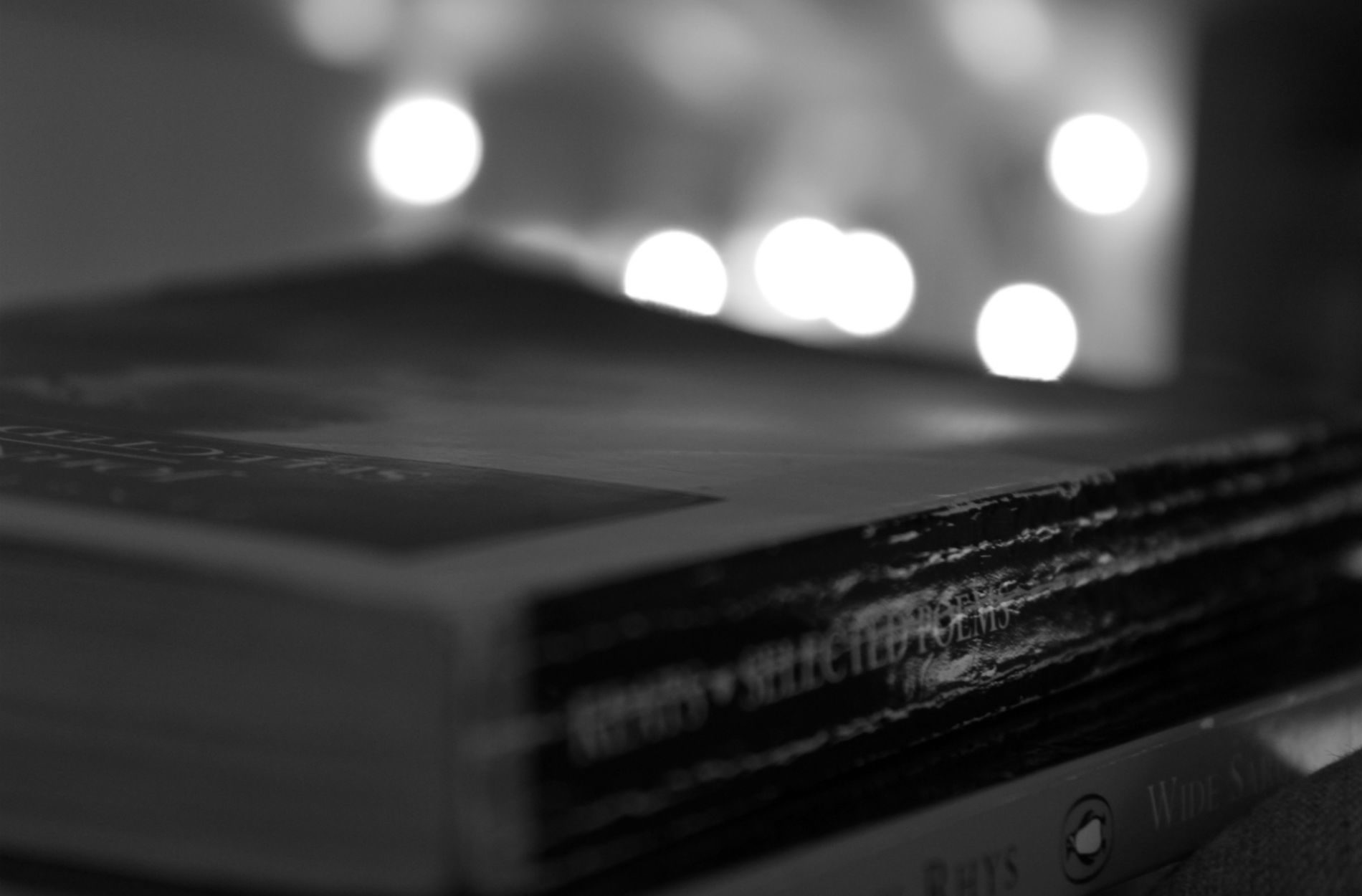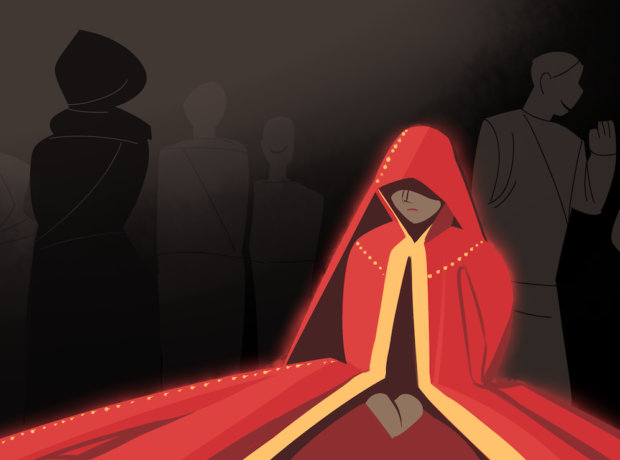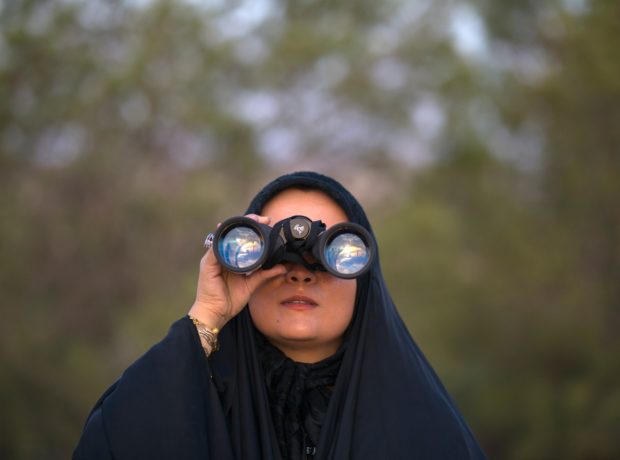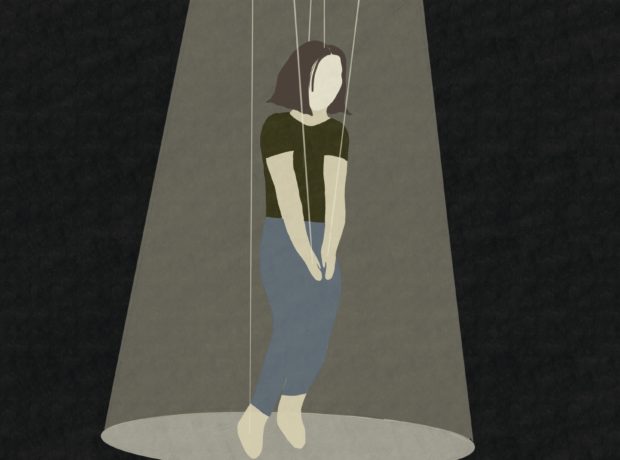Poetry is an incredible campaigning tool and I would love to see more activists and artists working closely together – sharing their unique skills and perspectives to highlight human rights issues.
When the Keats House Poets and the University of London’s Human Rights Consortium opened a call for submission of human rights poetry, we were struck by the quality and variety of themes in the 640 entries we received. We saw that the best human rights poetry employs wit, clarity, a unique personal insight and, crucially, leaves the reader space to contemplate the issue themselves. Political poetry that rants and seeks to convert is often discarded as propaganda – even by those who are of the same view point. Condensing complex, urgent and sometimes distressing messages with sensitivity and respect for the subject matter is a real art and the three following poems published in In Protest – 150 poems for Human Rights are great examples.
Kate Firth, a voice therapist and poet from Bristol, narrates a story of a triumphant community protest in Karnataka lead by 50, 000 Indian farmers, who use laughter to oust a corrupt official. Continuing the theme of how humour can be used by protesters to rise above their adversaries, award-winning Scottish poet Douglas Dunn paints an almost comedic student protest where the riot police are outwitted. Finally, Kit Fan presents a poem about his return to his primary school in Hong Kong, reflecting on how teachers managed the student’s response to Tiananmen Square.
The poems were originally published in In Protest: 150 poems for human rights, edited by Helle Abelvik Lawson, Anthony Hett and Laila Sumpton, (Human Rights Consortium, School of Advanced Study, University of London, 2013)
Photo by Bethan ![]()
![]()
![]()
The laughing farmers by Kate Firth
Because they had no power
they had no words that anyone would hear,
so they laughed.
This was their protest
their power
and their weapon.
Some would call it madness:
to march for miles
to simply sit on the lawn
of the Chief Minister
and laugh.
Was this a laughter of hysteria?
Or vision
of a genius
who knew
that when your rights are stolen
laughter is a choice
between survival
or defeat?
They could not be moved,
laughing for hours in the sun
to laugh the government out,
for laughter is the greatest triumph
and the greatest humiliation.
Drowning in the unrelenting echo
of hearts that couldn’t be bought,
the Chief Minister
became ridiculous.
And for fifty thousand laughing farmers
come election time,
the name of the Chief Minister
remained a joke.
The demonstration by Douglas Dunn
It looked as if about to become very nasty.
Helmeted, holding shields and truncheons, in riot gear,
The whole, extremely uncomfortable wardrobe,
The police squared up to the students
Who waved their banners and bottles of mineral water.
Some were outrageously got up as fairies,
Not a few in kilts, others like undertakers –
Top hats, tail coats, carrying the coffin of their cause.
Young women flaunted legs and behinds,
Many of them singing ‘The Beaux Gendarmes’.
‘Bugger this,’ said the officer in charge.
‘We’ll beat them at their own game.’
He passed the word to his second-in-command,
Who passed it on the third, who passed it on
Along the incredulous, obedient ranks.
Then the policemen lay down and the students carried them away.
Among school teachers by Kit Fan
The gate closed, bell unanswered, basketball court
stripped bare to lines and sparrows.
July is never the month for learning.
A school on Clear Water Bay Road, yet no water
bay, nor road. A bridge, along the scar of a hill
through the Lotus-flowered Magnolias I used to cross over
to the clamour of books.
A month of no children, but the translucent playground
after rain recalls the aftermath of hide-and-seek:
What’s the time, Mr Wolf?
The tick-tocking knees,
the run for life. A boy under a tree
restless for the world to spin in ten seconds.
That summer day, among school teachers
we stood and sang.
Not of psalms and gospels but farewell and falling men:
How bodies became mountains.
How the wind knew of sadness, the soil
of love. The colour of blood was the colour of our flag.
In the assembly hall children who knew little of death
had seen images of guns and wounds, a speck
of a person stopping a column of tanks.
It was a clear day but we were all shut in.
The ground deserted to the democracy
of the sun.
The cicadas buzzing their way
to the dead of summer. The world waiting
under some tree.
A thousand souls still singing
in a dark assembly hall on Clear Water Bay Road.



